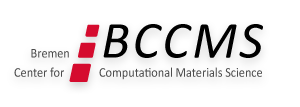Description
The primary goal of the CECAM workshop is to facilitate communication and collaboration between users and developers of machine learning and multi-scale quantum-based methods, with emphasis on accurate and useable applications of approximate DFT and semi-empirical (SE) methods, linear-scaling quantum mechanical and hybrid quantum mechanical/molecular mechanics approaches. The meeting is intended to provide a unique forum to bring together world leaders of different communities in method development to discuss recent advances in current methodologies, to assess their similarities and potential synergies, and to identify critical challenges in the field as well as future directions for research and development of the next generation of computational tools. On the more technical side, this will include the discussion of the state of the art in efficient parametrization and error quantification techniques, reference data bases, and multi-objective optimization strategies. Simultaneously, the workshop will involve people from the DFT and ab initio communities, who are interested in both SE/DFTB methods and ML as a supplement to their first principles methods (e.g. deMon2k, ATK, ADF), for example to use the more approximate techniques for screening large numbers of structures in high-dimensional feature spaces or to generate databases of reliable calculations for the more approximate methods.
The proposed workshop should become a forum to explore new ideas about solutions to important problems and identify new directions for method development and challenging applications. In this way, we hope to create an exchange mechanism to unite a core of developers in an interactive environment to initiate design of a new generation of integrated robust software tools for accurate large- and long-scale exploration of nanoscience. The delivery of this technology to a broad community would facilitate breakthroughs on high-risk, high-impact chemical problems in energy, resources, environment and health. Given the strongly interdisciplinary scope of the workshop, only theoretical modeling groups will be invited in order to ensure a sharp focus on method developments for next generation models for bridging scales in materials/systems sizes and time evolution.
[more]
